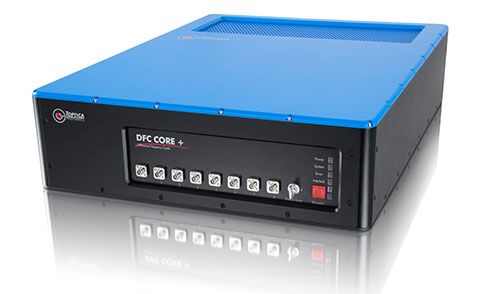Optical frequency measurement to the
21st significant digit
Today’s best optical clocks achieve an amazing accuracy and would be off by less than one second over the age of the universe. These clocks rely on probing optical transitions in cold atoms with very stable and narrow linewidth laser light. The probed atoms provide the long-term stability and accuracy of the clock. Frequency combs allow to combine the most stable lasers with the best reference atoms. This requires a stability transfer from the wavelength of the best available lasers to the wavelength of the cold atom transition in use.
Researchers at the Physikalisch-Technische Bundesanstalt (PTB) and TOPTICA Photonics have now demonstrated a stability transfer at a record level of 10-21 at 105 s averaging time using a commercial frequency comb (DFC CORE+). This has been achieved with a new approach suppressing the influence of optical path-length fluctuations by a combination of active phase-stabilization and common-path propagation. The scheme is technically simple and robust against environmental parameter fluctuations. The reported frequency ratio measurement was characterized to have an accuracy of 9.4 x 10-22 which is equivalent with a measurement to the 21st significant digit.
This paves the way for a future improvement of some of the most sensitive instruments ever created: optical clocks and gravitational wave detectors. Both benefit from transferring the ultimate stability to a specific wavelength.
The open access article is available for download.
Erik Benkler, Burghard Lipphardt, Thomas Puppe, Rafał Wilk, Felix Rohde, and Uwe Sterr, Optics Express 27, 25, 36886 (2019).
The DFC CORE+ will be displayed at BiOS #8209 / Photonics West #3209 2020 (Feb 1st – Feb. 6th) in San Francisco.
For more information visit the TOPTICA Difference Frequency Comb webpage.

